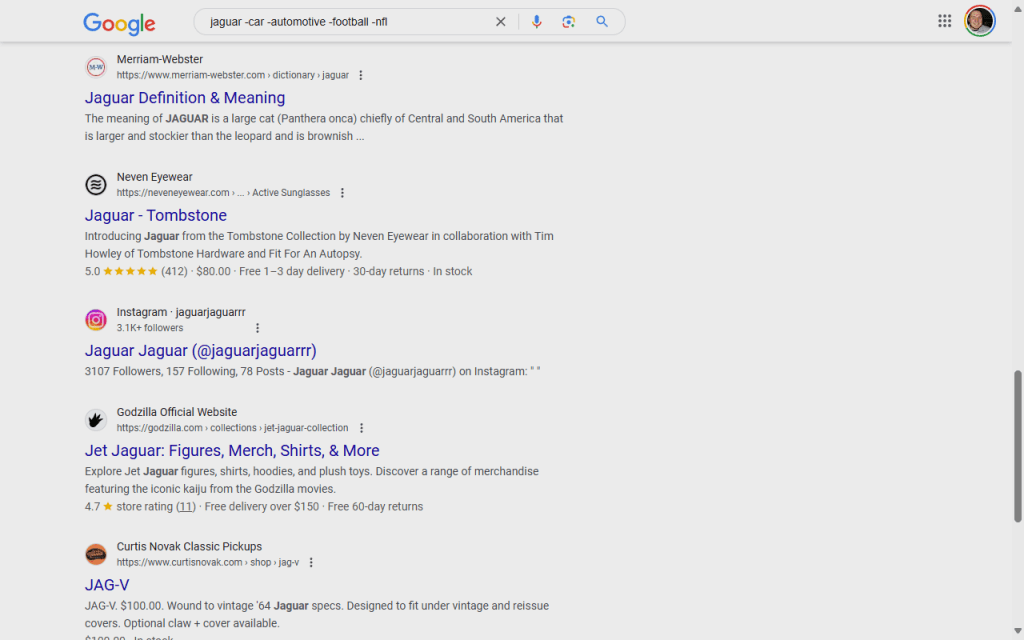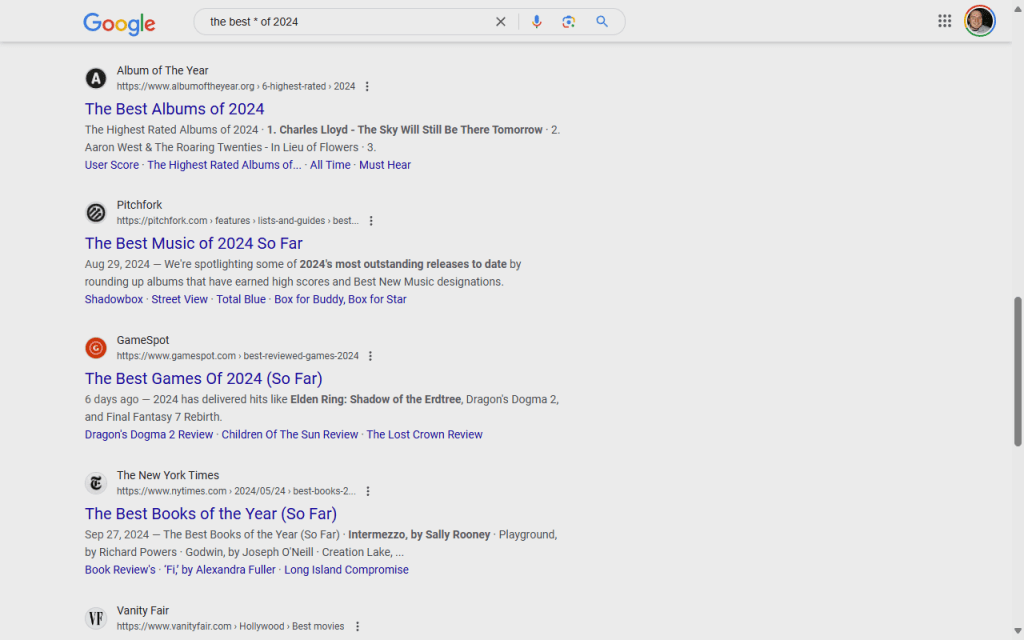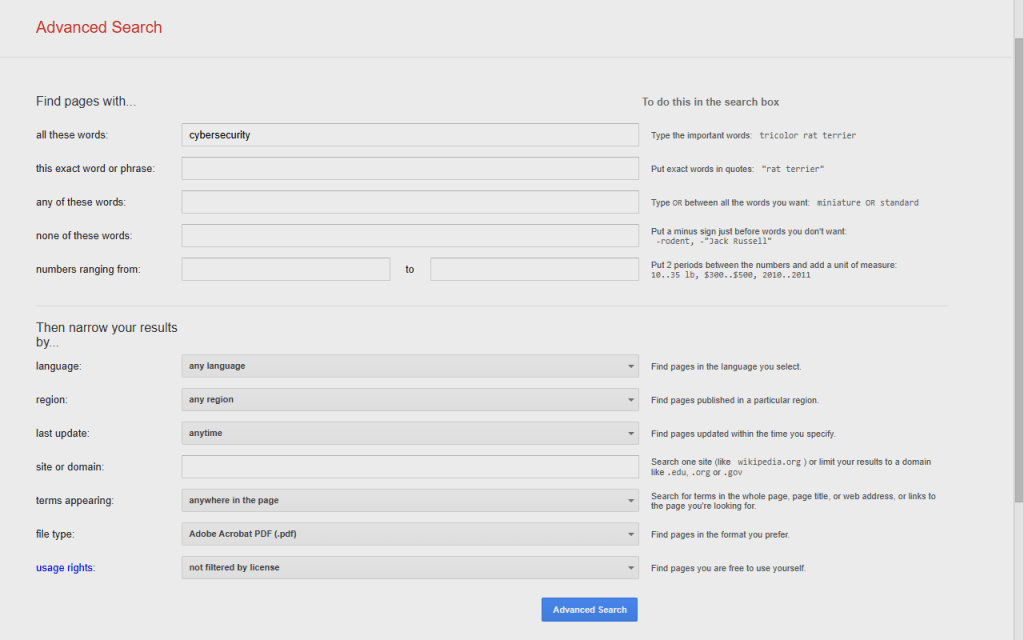Google is an incredibly powerful search engine, but many users aren’t tapping into its full potential. And with nearly limitless results on any given topic, effective searching is about being specific and using the right tools for the job.
Here are several tricks to help you refine your searches and find exactly what you’re looking for more efficiently.

Exclude words with a minus sign
To remove unwanted results from your search, use the minus sign before words you want to exclude, which is helpful when a search term has multiple contexts.
For instance, if you’re researching jaguars (the animal) but want to avoid results about the cars or football team, try searching for “jaguar -car -automotive -football -nfl”.
This will filter out pages related to Jaguar vehicles and the middling Jacksonville NFL franchise, allowing you to focus on information about the big cats.

Search within a specific site
You can limit your search to a particular website by using the “site:” operator. This is incredibly useful when you want to find information on a specific domain or when you remember reading something on a particular site but can’t locate it.
For example, to find articles about artificial intelligence here on Fast Company’s website, search for “artificial intelligence site:fastcompany.com”.

Use the asterisk as a wildcard
The asterisk (*) acts as a placeholder for unknown or variable words in a phrase.
This is helpful when you can’t remember an exact phrase, such as finding song lyrics when you only remember part of a line or for discovering variations of a common phrase.
It’s also helpful for super broad searches. For example, “the best * of 2024” will show results for the best movies, books, products, events, and more from 2024.

Search by file type
If you’re looking for a specific type of file, use the “filetype:” operator – useful when you’re searching for particular document formats for work, study, or the like.
For example, “cybersecurity filetype:pdf” will return whitepapers and reports in PDF format about cybersecurity topics.

Use Advanced Search
Google’s Advanced Search feature allows for more precise filtering of results, giving you greater control over your search parameters – like being able to narrow down results by language, region, last update, file type, and more.
To access it, click Tools > Advanced Search at the top of a search results page and select “Advanced search”. This tool is particularly useful for academic or professional research, allowing you to set specific date ranges, usage rights, and even reading levels for your search results.
Ak chcete pridať komentár, prihláste sa
Ostatné príspevky v tejto skupine

As Elon Musk announced plans over the Fourth of July weekend to establish a third political party,

Dolores Ballesteros, a Mexico-based mother of two, was getting desperate. Her 6-year-old son kept hitting his brother, age 3, and seemed angry at her all the time. No matter what she did, she coul

Rarely has Silicon Valley experienced a more profound period of transformation than it has in the past handful of years. The big VC boom of 2020–2021. The great VC hangover starting in 2022. The g

A YouTube executive needed only 27 minutes to make the case that the company is taking over all aspects of how people create and consume video online.
That was the length of a recent tal

Every time I read about another advance in AI technology, I feel like another figment

Racist AI-generated videos are going viral on

Scientists are tracking a large gas planet experiencing quite a quandary as it orbits extremely close to a young star – a predicament never previously observed.
This exoplanet, as
